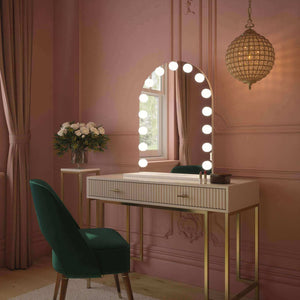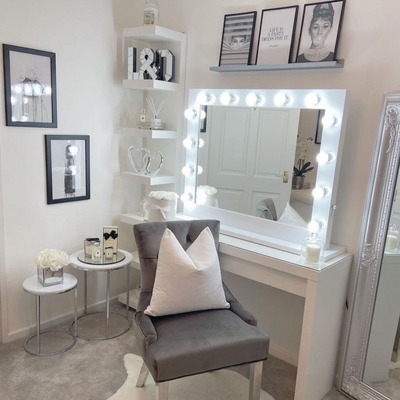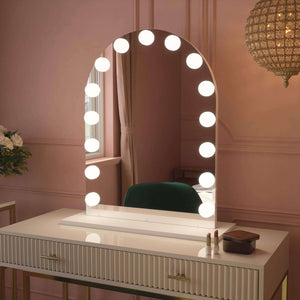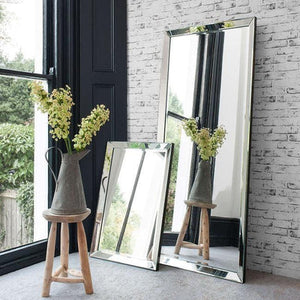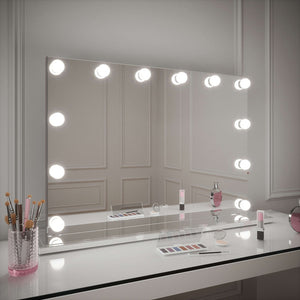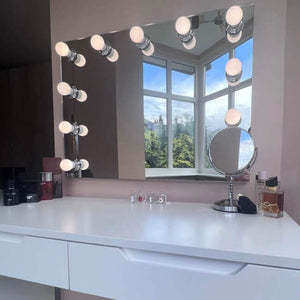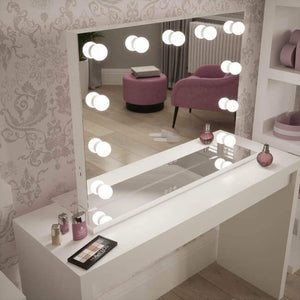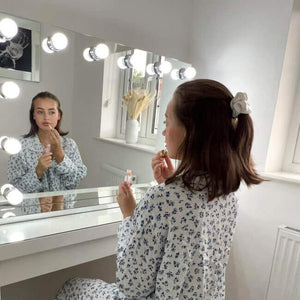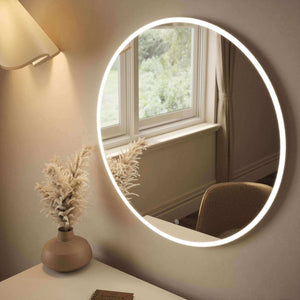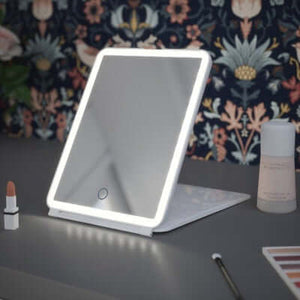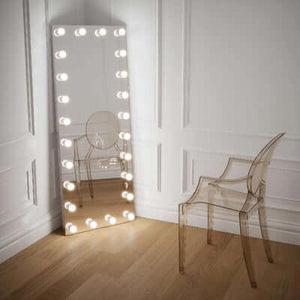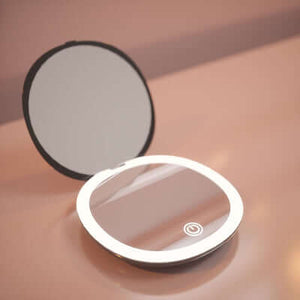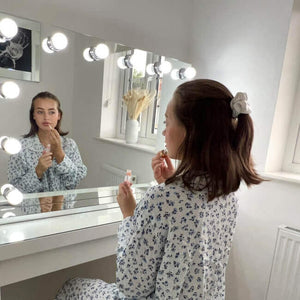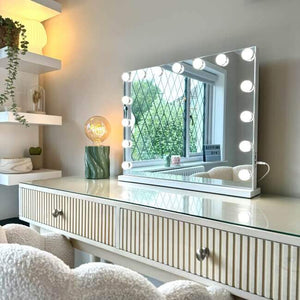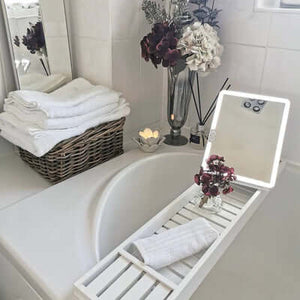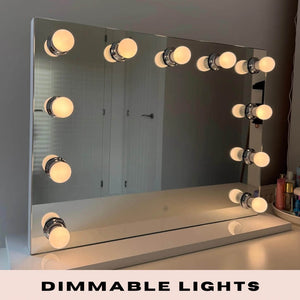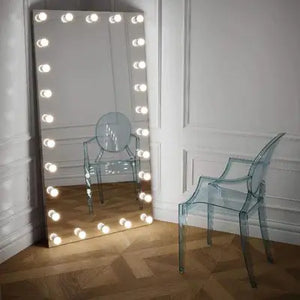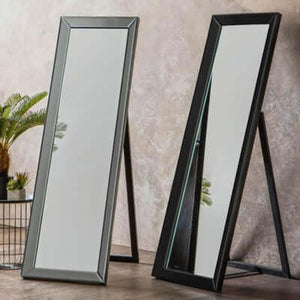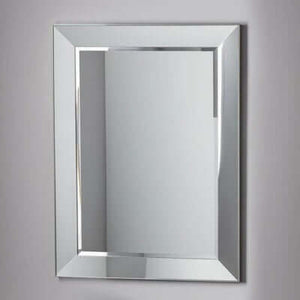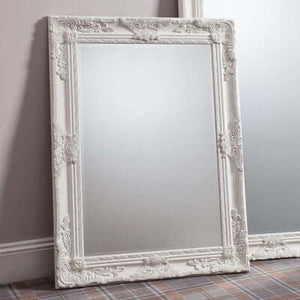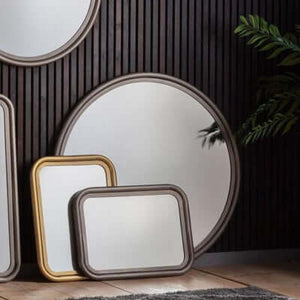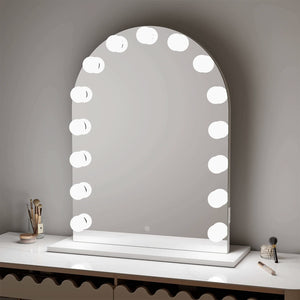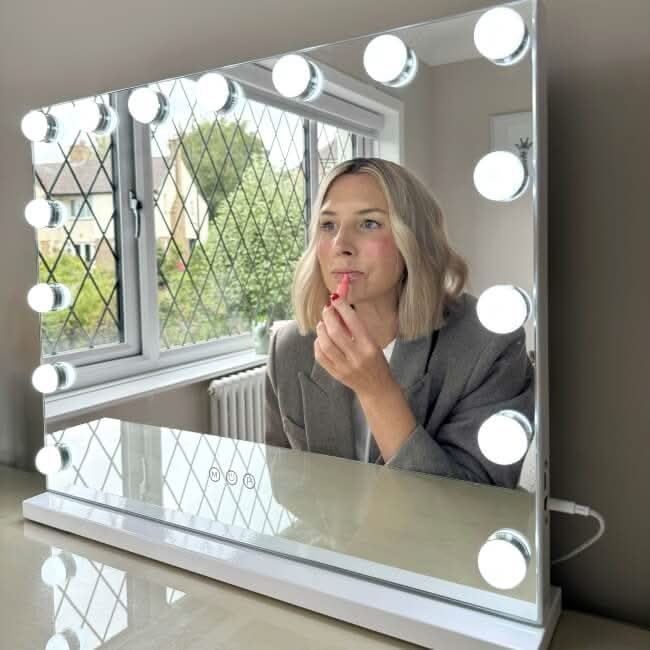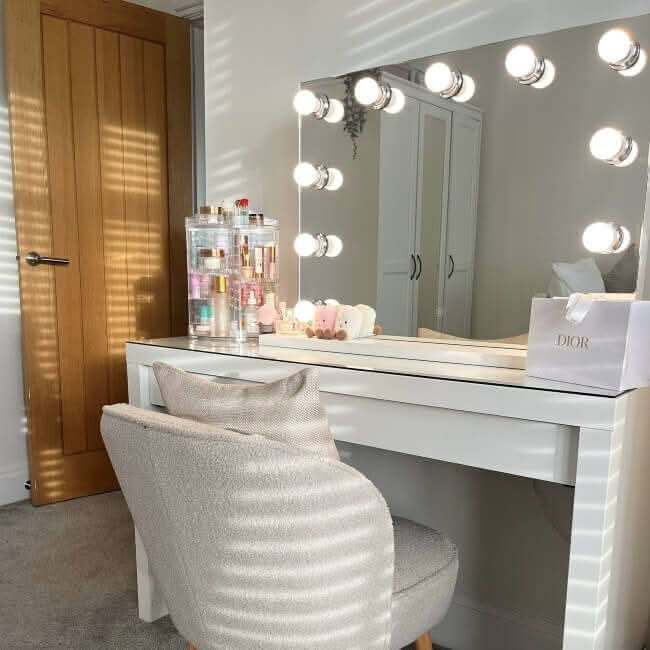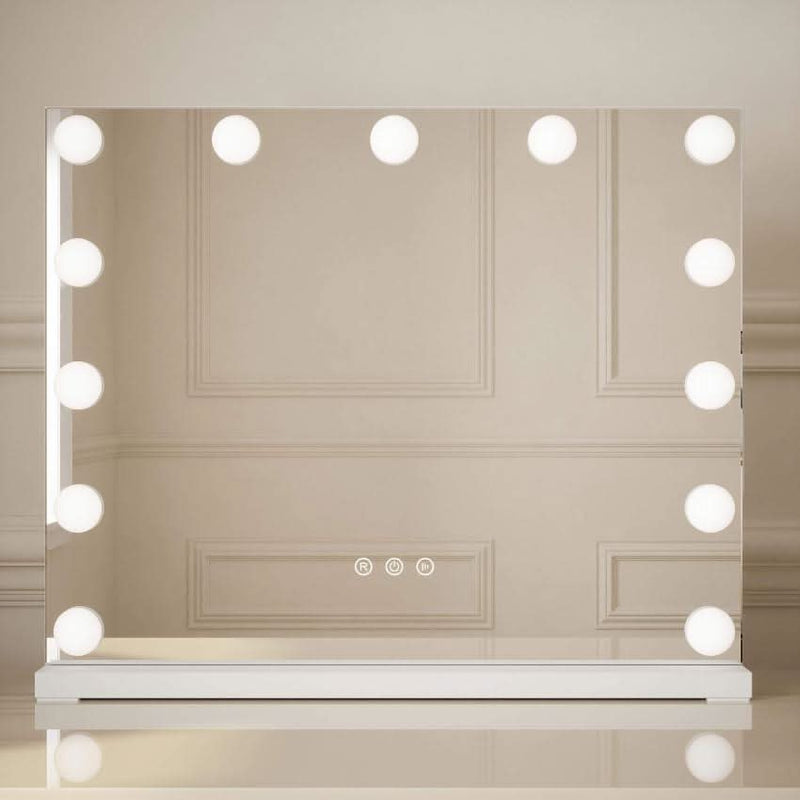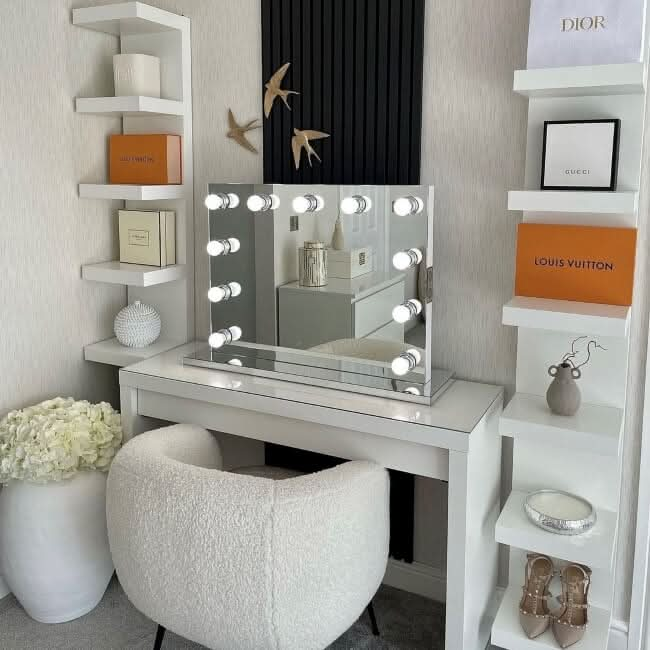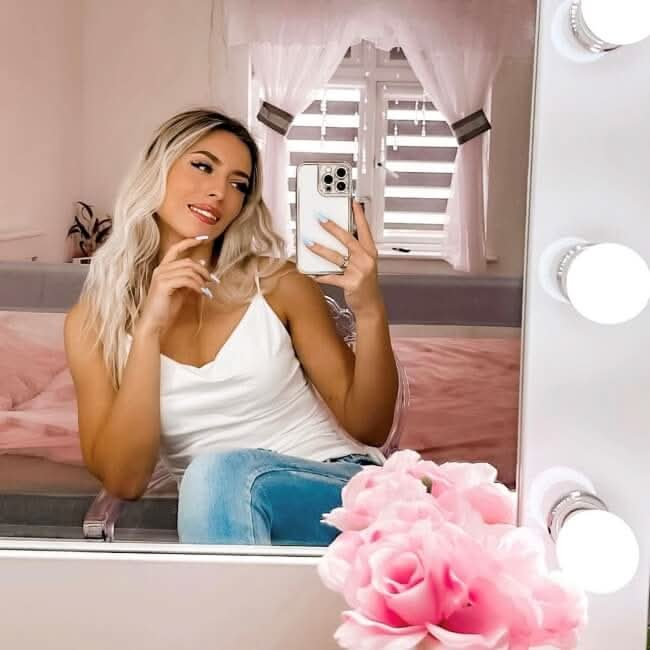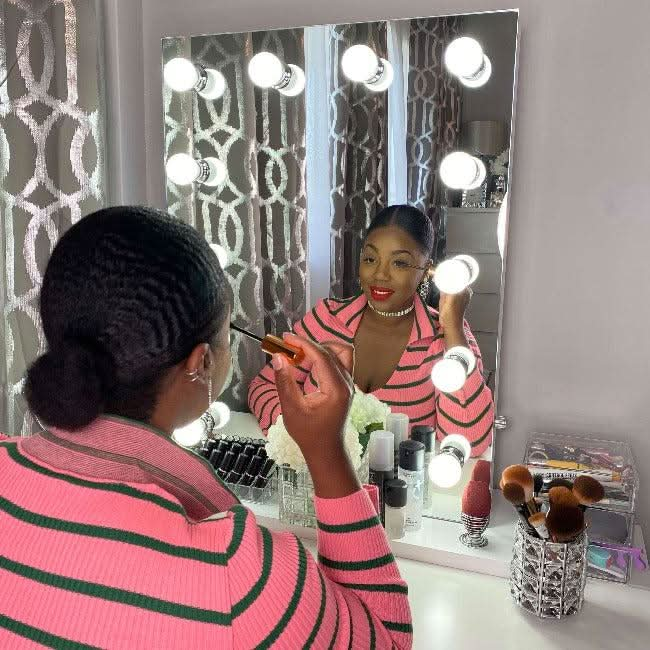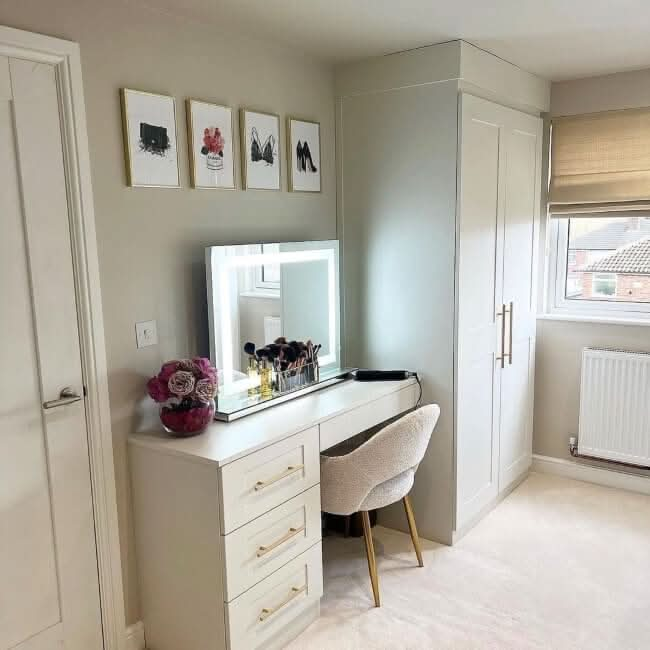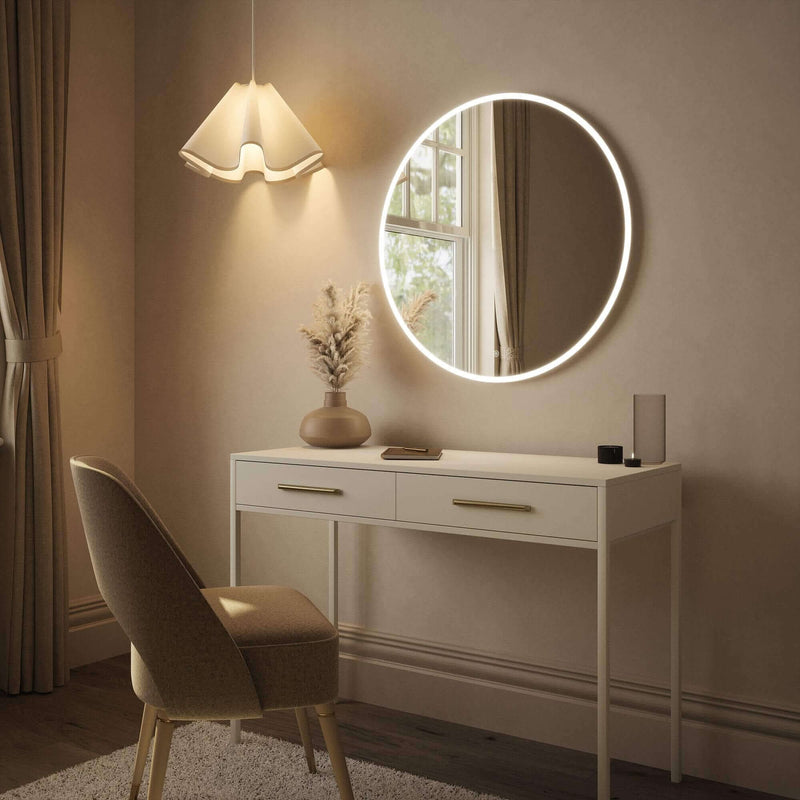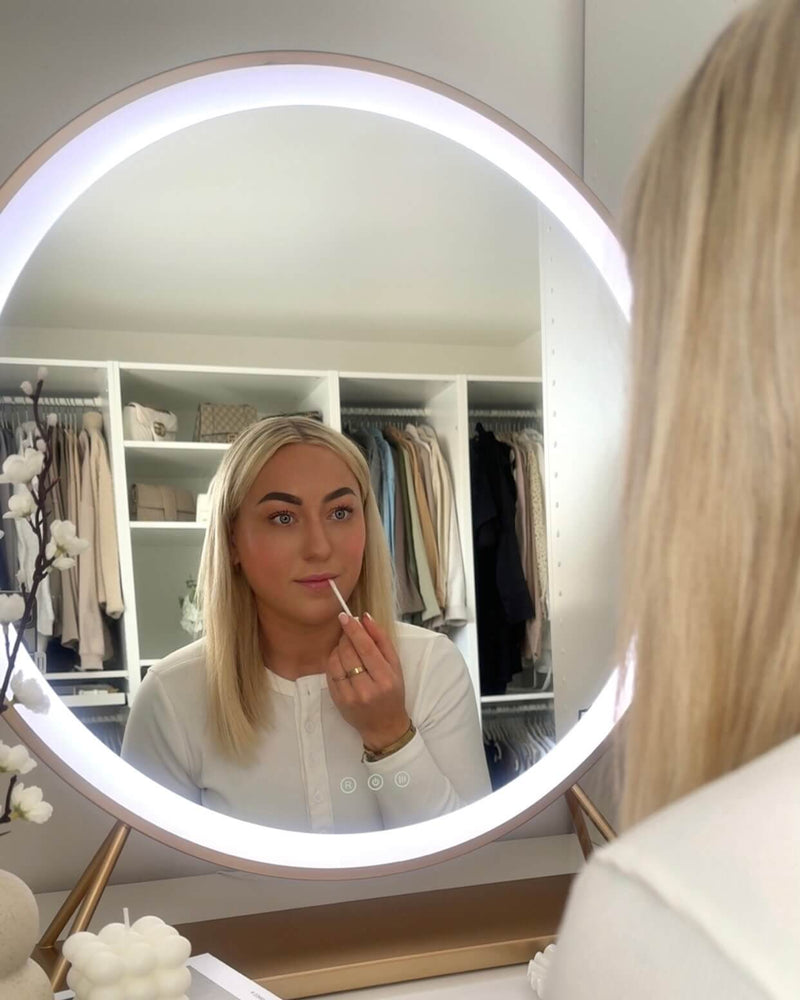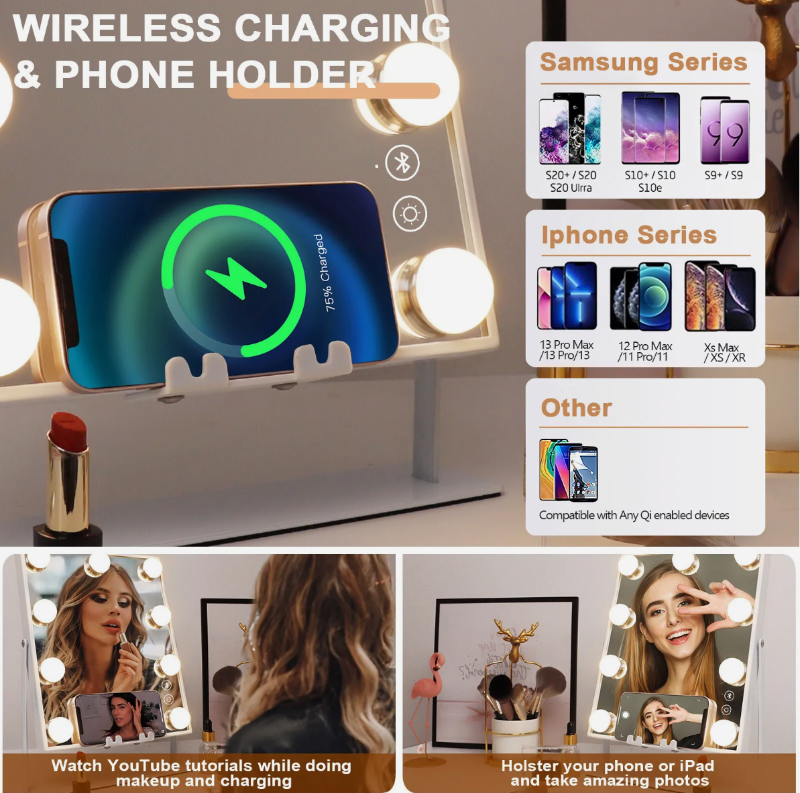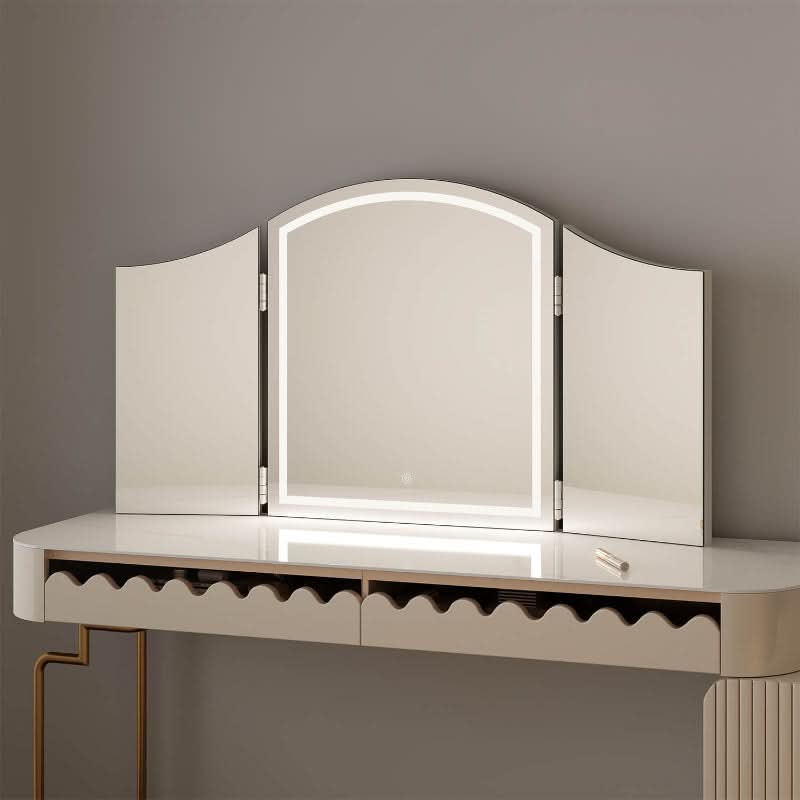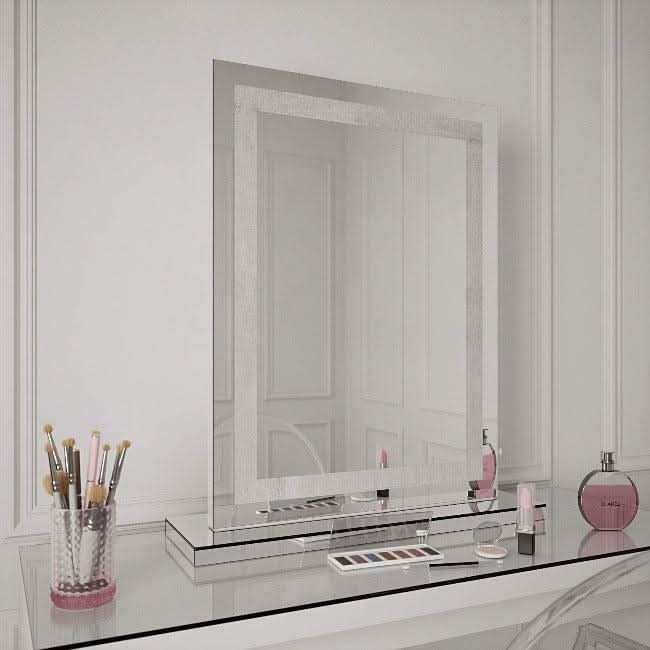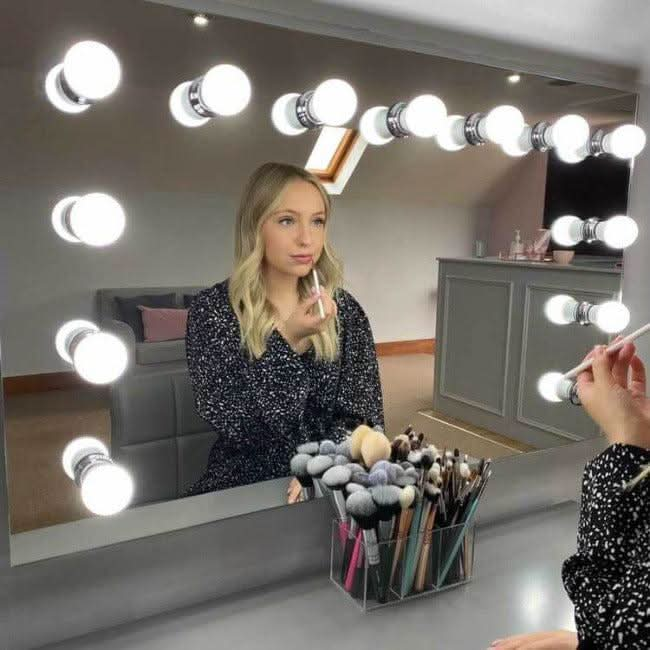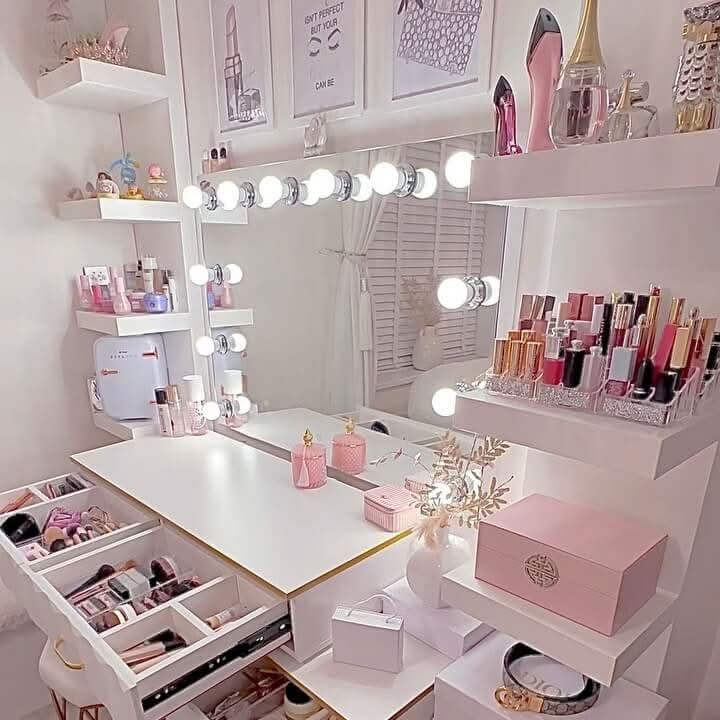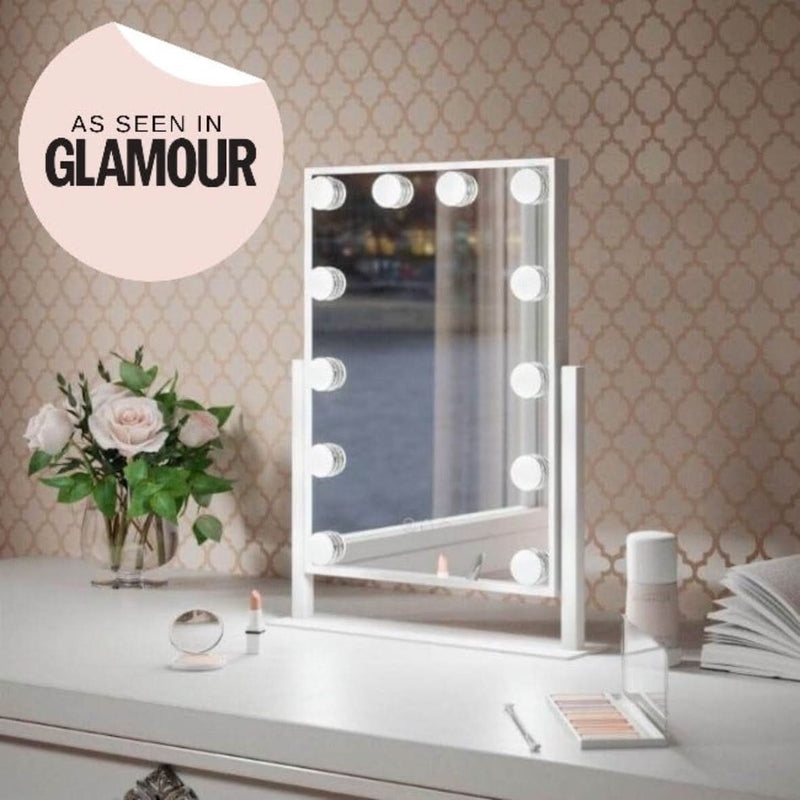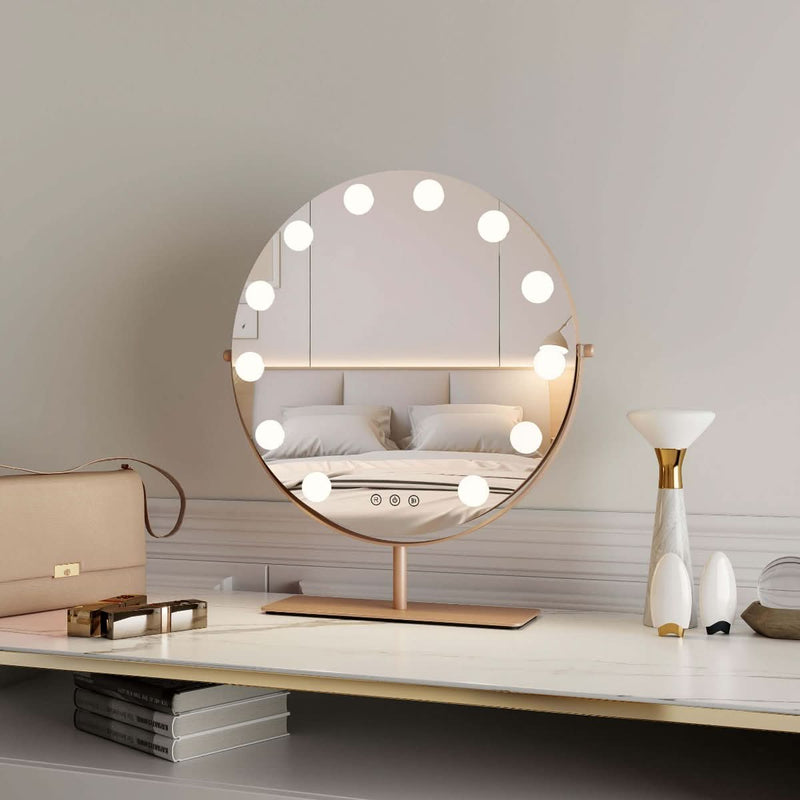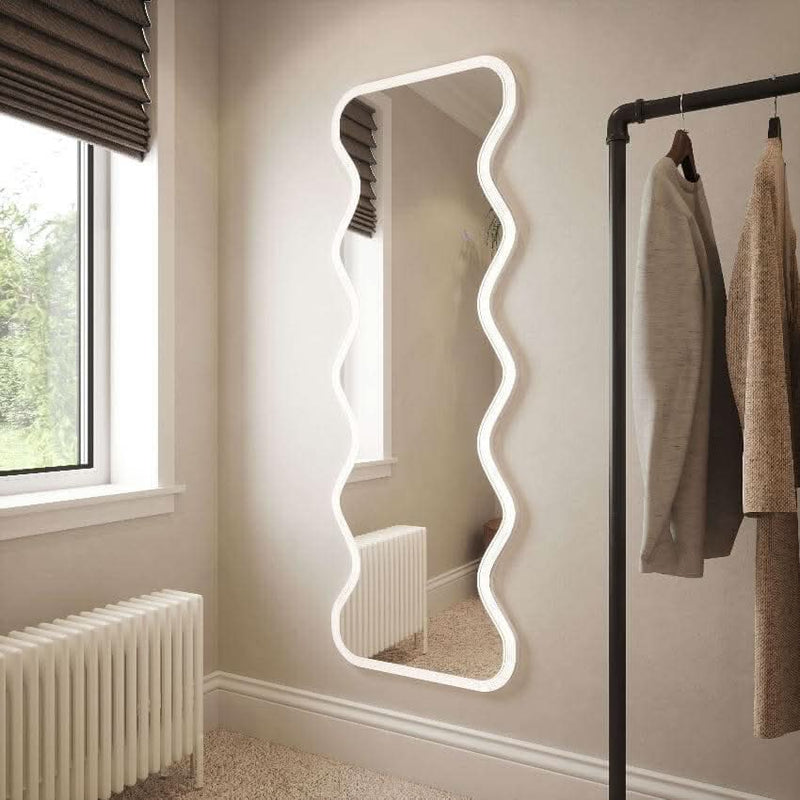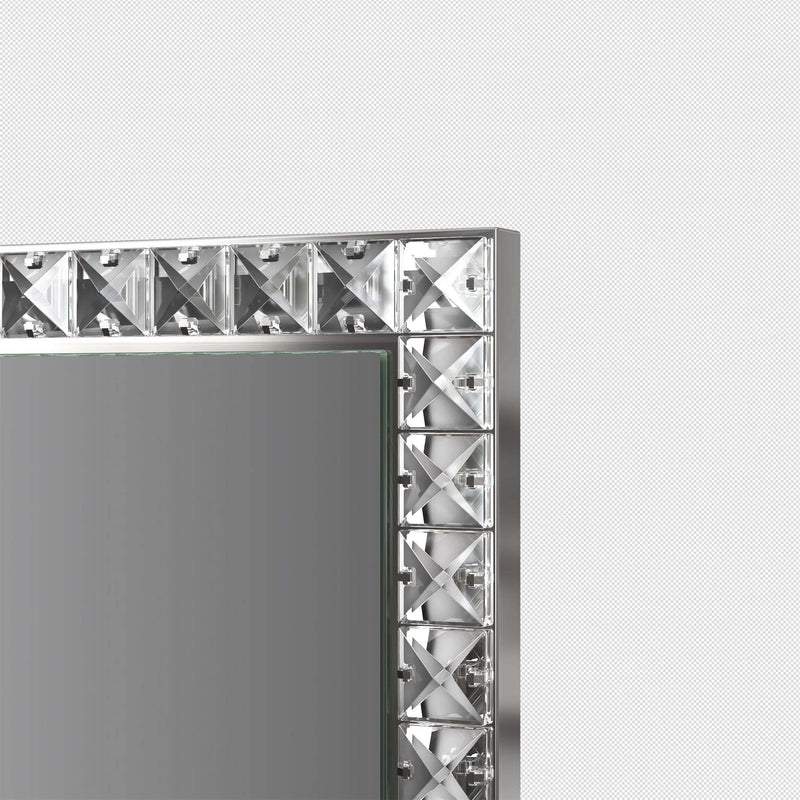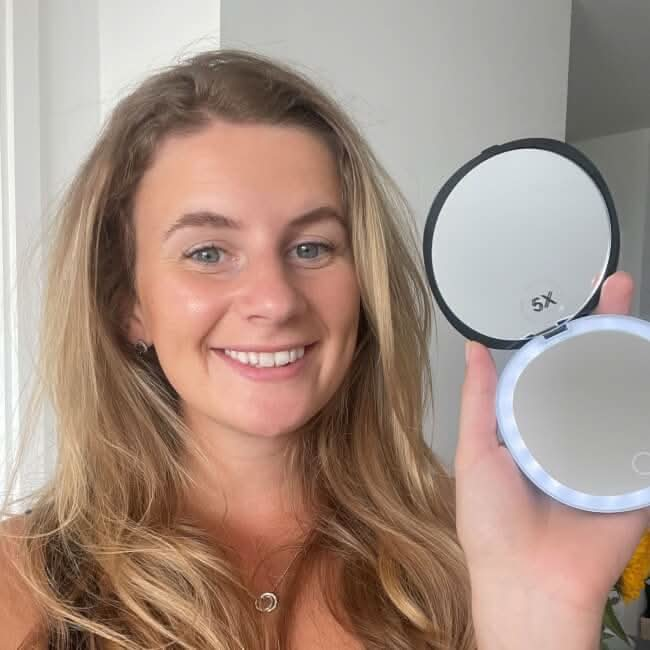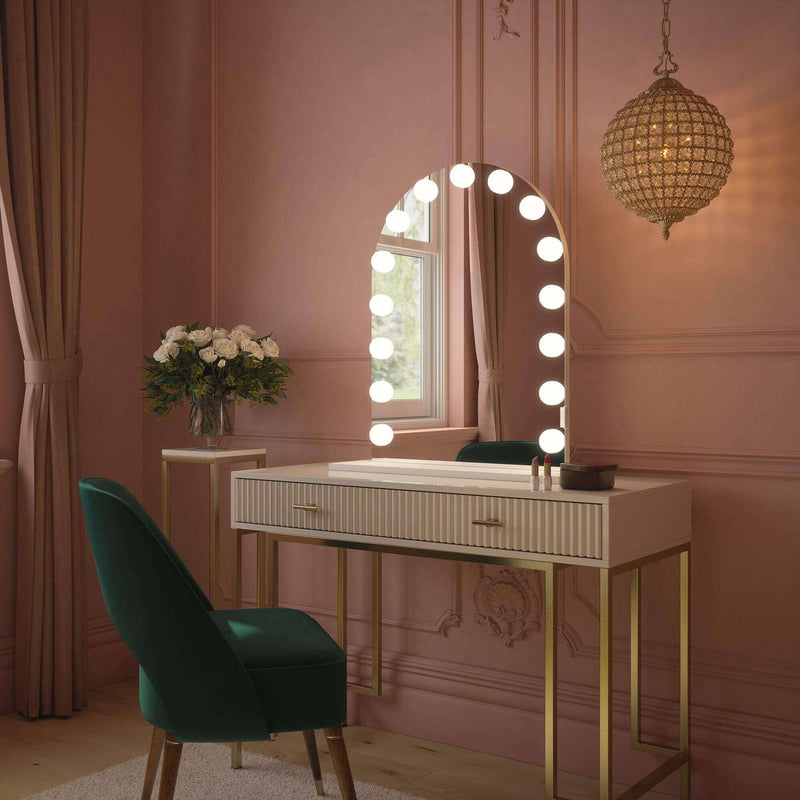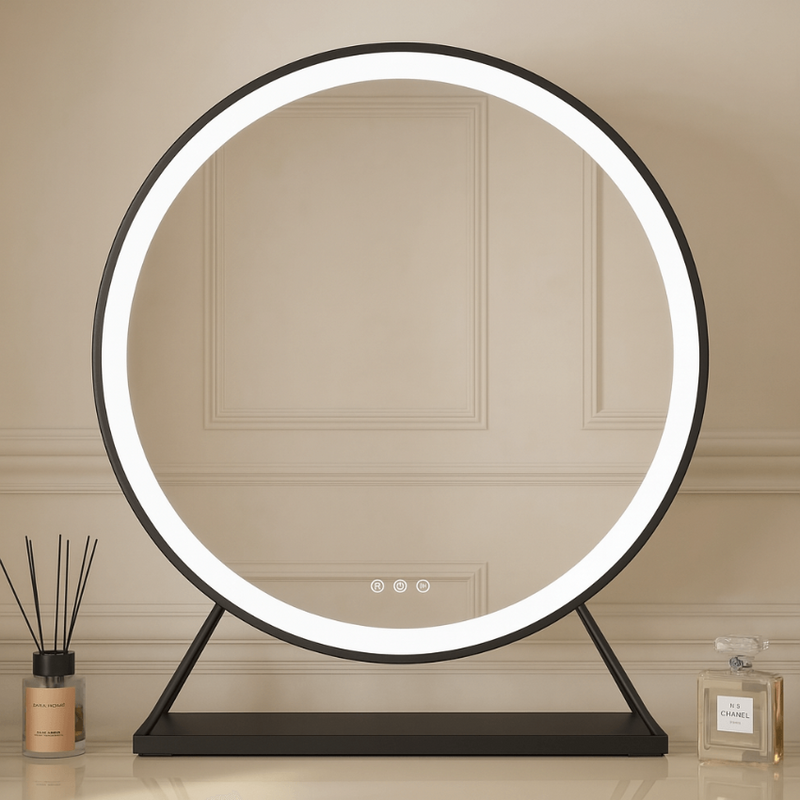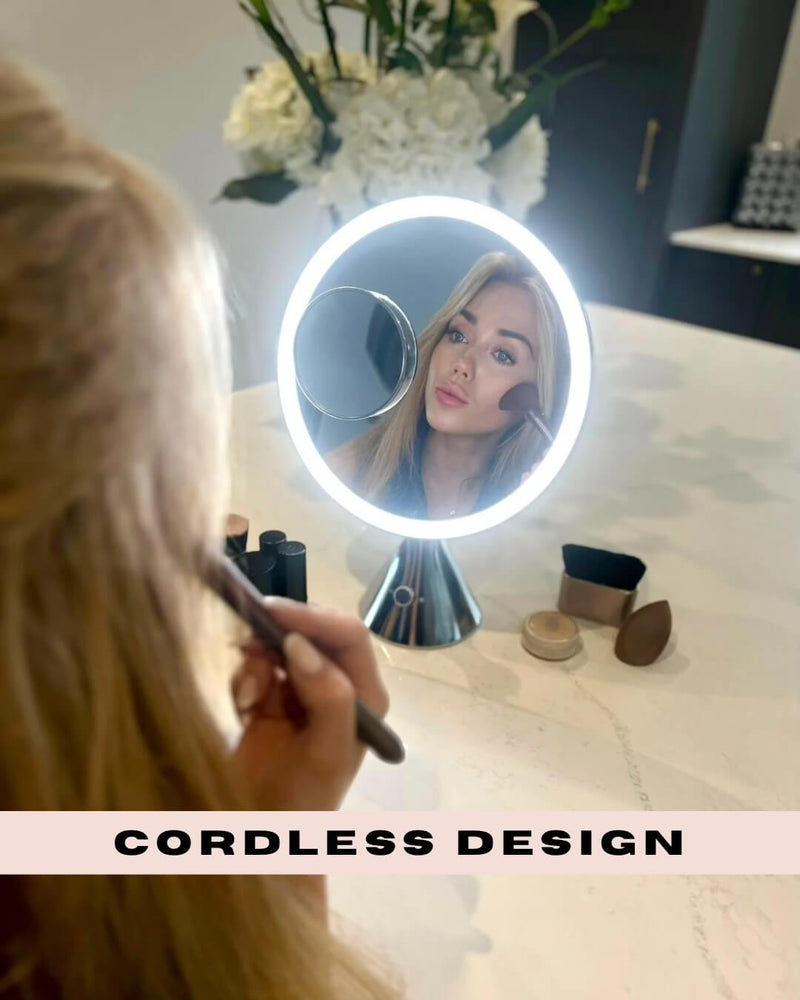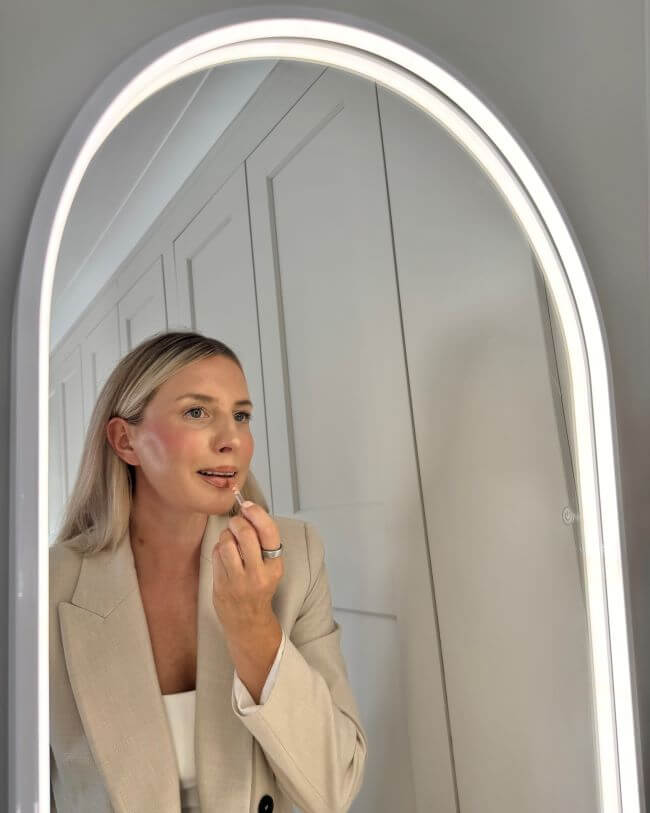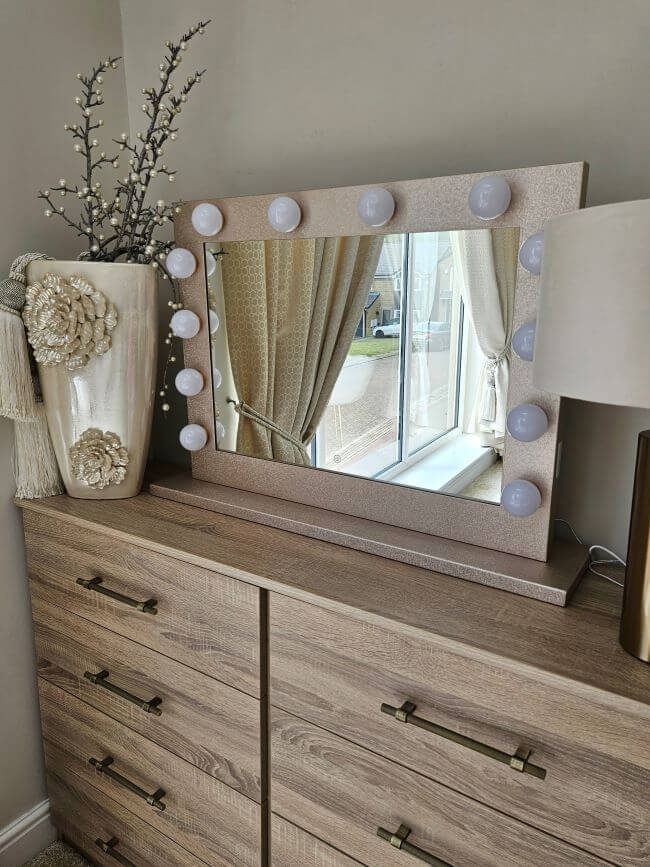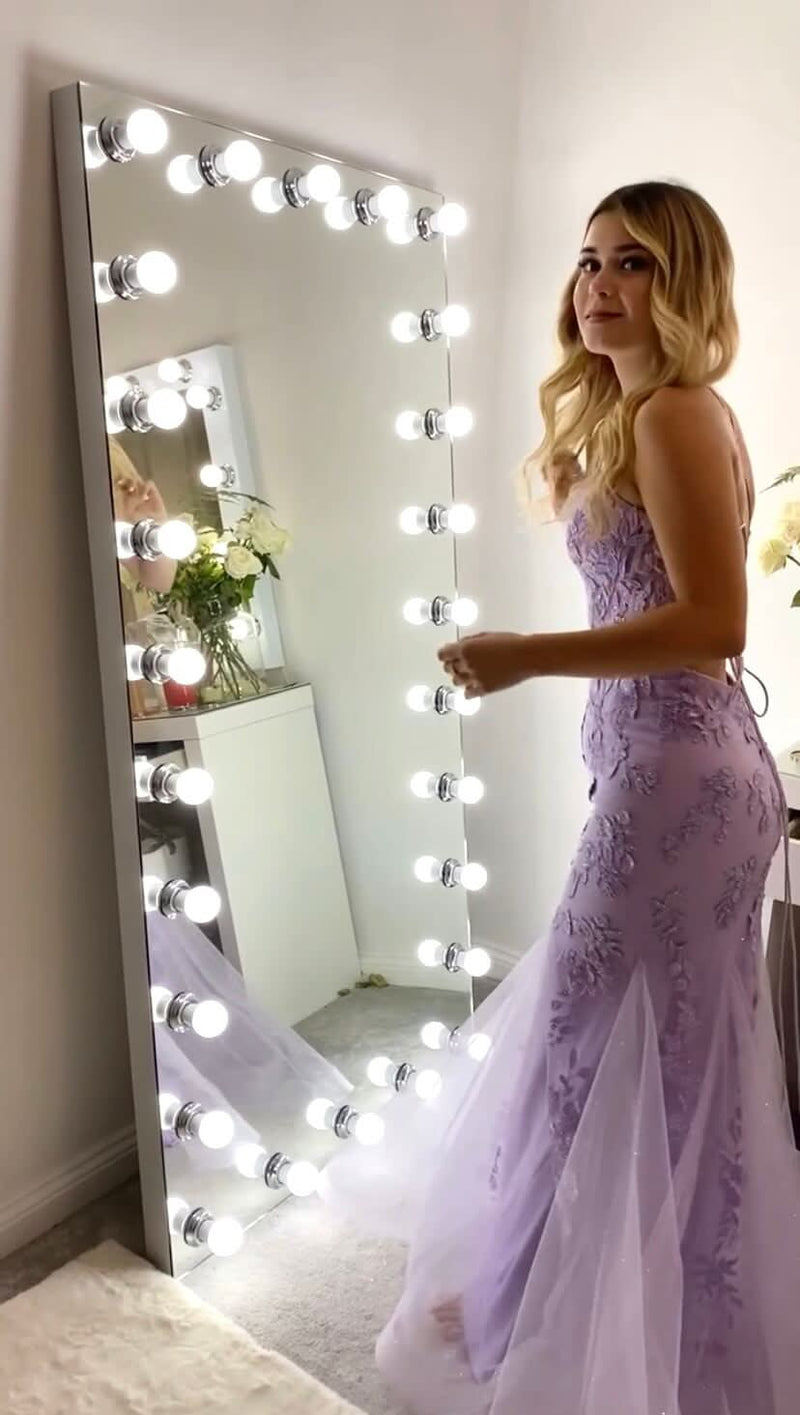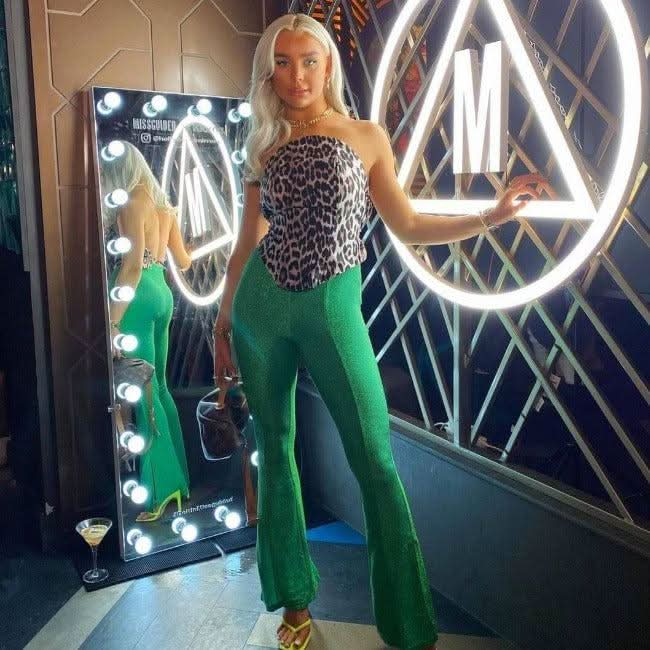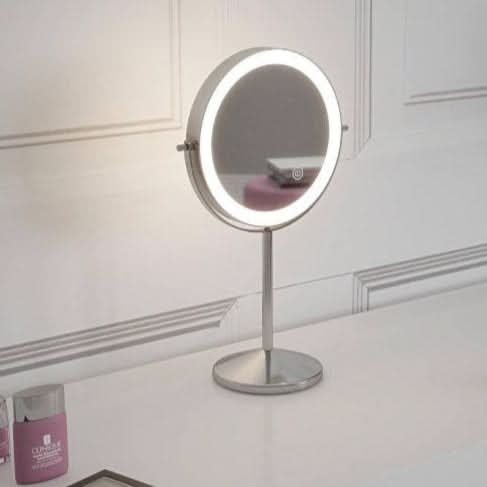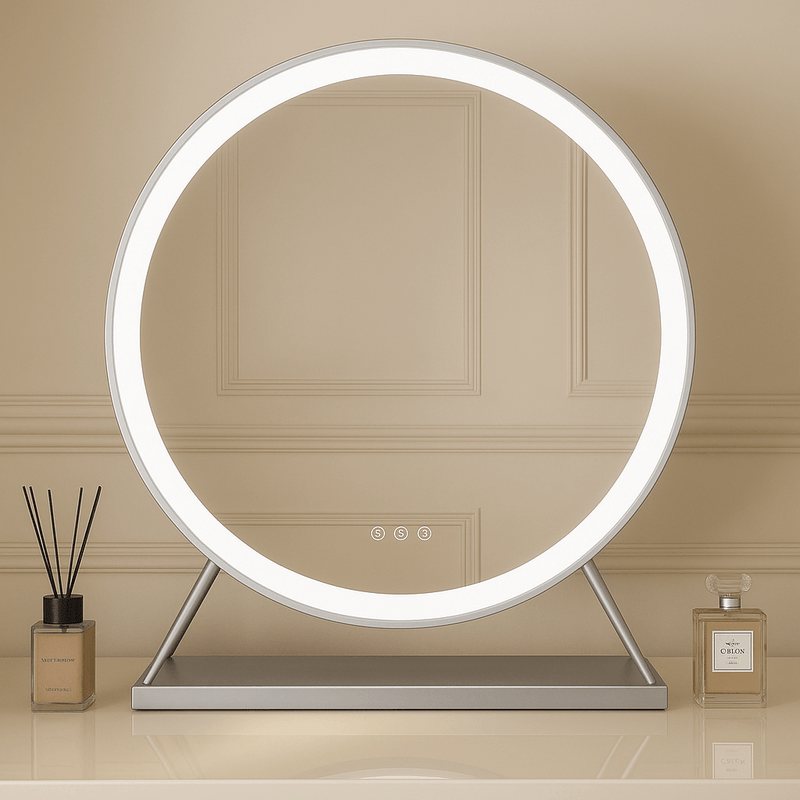
Dressing Table Mirror with Lights: Add Style and Shine to Your Space
Looking for theperfect dressing table mirror with lights? You're in the right place.
We've been designing high-qualitytable mirrors in the UK since 2016. We are trusted by over 1750 happy customers and loved by mums and daughters. And yes —every mirror comes with a 1-year warranty, a 60-day money-back guarantee, and next-day UK delivery.
Let's help you find the right one.
Why Choose a Dressing Table Mirror with Lights?
Because great lighting changes everything.
Whether it's your dailymakeup application, skincare routine, or just a quick outfit check before heading out — you need lighting thatworks.
Our mirrors are fitted with high-qualityLED lights that mimic natural cool light. That means no more guessing in poor lighting or standing by a window. Just flick the switch, and you're ready.
What Is a Dressing Table Mirror?
Think of it as the centrepiece of yourdressing table. It's what brings the whole look together.
-
Adressing table mirror isn't just practical.
-
It's part of your room'sstyle.
-
It makes your daily routine easier.
-
And it adds a little wow factor.
Features That Make a Difference
We've worked on the small details — so you don't have to.
Ourdressing table mirrors with lights include:
-
AdjustableLED lighting with dimmer controls
-
Touch sensors for easy use
-
Crystal-clearillumination
-
Sturdy, secure bases (no wobble!)
-
Available in differentcolours to match your room
Everything is designed for ease, style, andfunction.
Add One to Your Bathroom, Bedroom, or Dressing Area
Ourtable mirrors aren't just for one spot.
Place one in your:
-
Bathroom for a brighter morning routine
-
Bedroom tocomplete your vanity setup
-
Dressing room as a statement piece
No matter where you place it, it adds light andstyle instantly.
Designed in the UK for Maximum Style
We've been designing and building mirrors in the UK for nearly a decade. That means we've had time to perfect them.
Every dressing table mirror is made with care and tested for performance. A 1-year warranty backs it.
You getthe best, peace of mind, and fast, insured delivery — all at once.
Size Options for Every Space
Don't need a huge mirror? No problem.
Want something that fills the space? We've got you.
From a range of sizes measured incm to suit your space and routine. Whether working with a compact desk or a widedressing table, there's a perfect fit.
How LED Lights Make Makeup Easier
Lighting matters for makeup application.
LED lights offer bright, evenillumination — showing true colours—with no yellow tint. No shadows.
This helps you:
It's like having your backstage vanity.
Ready to Plug In and Go
No tools are needed. No stress.
Our mirrors comeready to use out of the box.
Just:
-
Plug it in
-
Tap the touch sensor
-
Enjoy perfect light
You'll be up and running in seconds.
Style Meets Function
You want your mirror tolook good — not just work well.
That's why our mirrors are designed to match a range of styles:
-
Modern minimalist
-
Glam Hollywood
-
Soft neutral tones
You canchoose from chrome, white, black, or rose gold finishes. There's something for every taste.
What Makes Our Mirrors Stand Out?
Simple. Here's what youwon't find everywhere:
-
Over1,750 five-star reviews
-
A60-day money-back guarantee
-
Freenext-day delivery in the UK
-
Option tobuy now, pay later with Klarna, Clearpay, or PayPal
You're not just buying a mirror. You're making asmart purchase.
Products You'll Love
We've got options.
You can find one that fits, from compacttable mirrors for small spaces to wider models with multiplelighting settings.
Start by asking:
From there, pick themirror you'll love every time.
What Our Customers Say
Here's what people just like you are saying:
"Love my new mirror! The lights are perfect for doing makeup. Excellent quality, too."
"Arrived next day, beautifully packed. It looks great on my dressing table. Would recommend."
"Easy to set up, love the touch light control. Feels very solid and stylish."
Perfect for Everyday Use
You'll use this everysingle day to do your makeup application. So it has to work.
That's why we focus on:
Your routine deserves it.
Great Gift Idea
Looking for a gift?
These mirrors are afavourite choice for birthdays, Christmas, and special occasions, especially formums buying for their daughters.
Because a greatdressing table mirror is something they'll use and enjoy every time.
F&Q — Common Questions Answered
Q: Do I need to assemble the mirror?
A: No. All our mirrors come fully assembled andready to use.
Q: Can I adjust the brightness?
A: Yes — all our mirrors withLED lights have dimmable settings.
Q: What size dressing table mirror should I choose?
A: Measure your table and space. We list sizes incm to make it easy.
Q: What if I don't like it?
A: You're covered by our60-day money-back guarantee. No hassle.
Q: How long is the delivery?
A: We offerfree next-day delivery across the UK. All deliveries are insured.
Your Dressing Table Setup
Once you've got the mirror, your space feels…complete.
Add it to yourdressing table and see the difference. Not just in light. But in how you feel getting ready.
It's Time to Pick Your Mirror
Please scroll through our products. Pick the one that feels right.
We'll pack it with care. Deliver it fast. And if it's not love at first sight, you've got 60 days to change your mind.
So go ahead.Choose the dressing table mirror with lights you'll love every day.
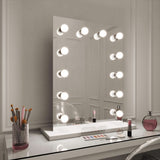 Alicia Hollywood Mirror 60cmx80cm
Alicia Hollywood Mirror 60cmx80cm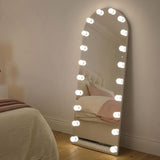 Angelina Full Length Arch Hollywood Mirror 160 x 60cm
Angelina Full Length Arch Hollywood Mirror 160 x 60cm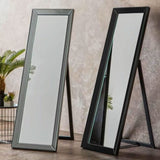 Angled Luna Mirror-Cheval Black
Angled Luna Mirror-Cheval Black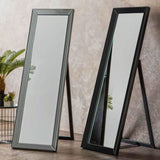 Angled Luna Mirror-Cheval Gray
Angled Luna Mirror-Cheval Gray
